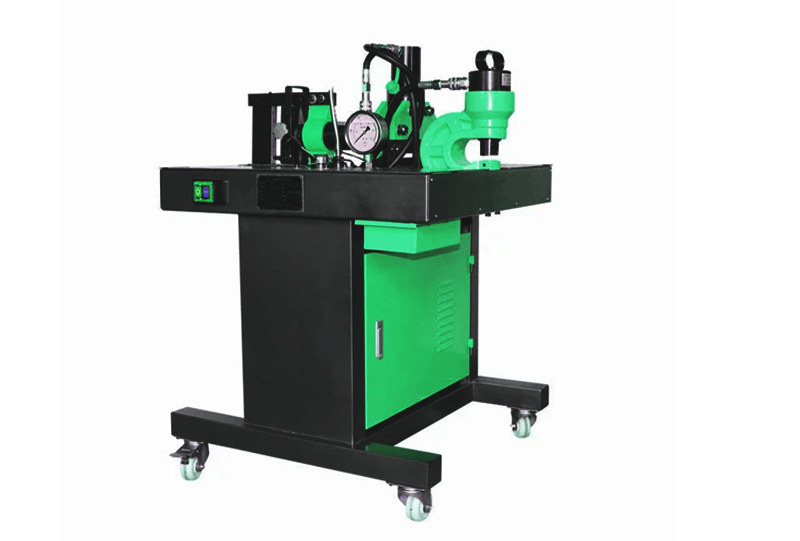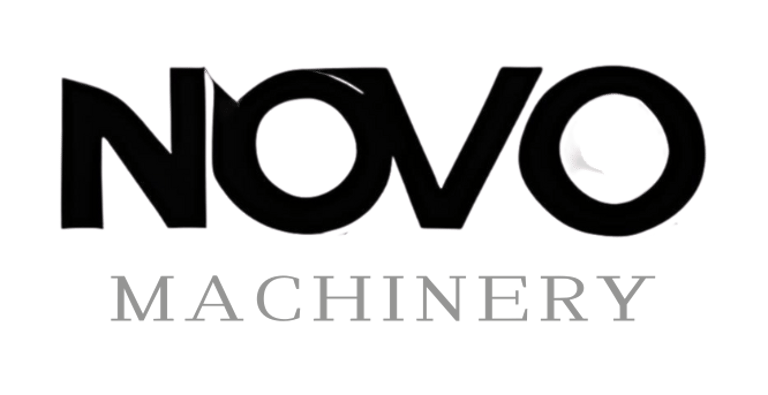Columbia Reduces Field Machining Time by 70% with Portable Busbar Machine Equipment
7/16/20254 min read


Introduction to Portable Busbar Machine Equipment
Portable busbar machine equipment represents a significant advancement in the realm of field machining, particularly in industries such as electrical engineering and manufacturing. These mobile tools are specifically designed to manufacture and process busbars on-site, thereby eliminating the need to transport heavy materials to a centralized workshop. This capability not only streamlines operations but also reduces downtime, which is a crucial factor in maintaining productivity within fast-paced environments.
The evolution of portable busbar machines can be traced back to the growing demand for efficient machinery that can adapt to various job sites. Traditional field machining methods often involve cumbersome and time-consuming processes that require substantial manpower and specialized tools. Moreover, these methods pose challenges such as limited workspace, potential for human error, and increased costs associated with equipment transport and setup. This is where portable busbar equipment has revolutionized the workflow.
Portable busbar machines integrate advanced technology to allow for precision machining, cutting, bending, and fabrication of busbars directly at the location where they are needed. By utilizing this innovative equipment, companies can significantly mitigate the issues associated with conventional practices. For instance, on-site production not only minimizes logistical complexities but also ensures that adjustments can be made swiftly and efficiently, thereby enhancing overall operational efficacy.
The significance of portable busbar machines extends beyond mere convenience. In an industry where electrical conductors must meet high safety standards and specifications, these machines provide a reliable solution. They are tailored to meet the demands of various sectors, enabling companies to operate with greater flexibility and responsiveness. As we delve further into this topic, it becomes evident how Columbia's adoption of portable busbar machine equipment has led to substantial improvements in field machining processes.
The Challenges of Traditional Field Machining
Traditional field machining presents numerous challenges that can impact operational efficiency and project timelines. One of the principal issues associated with conventional methods is the time-consuming nature of these processes. Standard machining operations often require extensive setup and calibration, which can lead to prolonged downtime. For example, when technicians are called to modify equipment in remote locations, the inefficiencies of traditional techniques can cause delays that ripple throughout an entire project, delaying scheduled deliverables.
Additionally, the limitations of traditional equipment further exacerbate these issues. Many standard machines are bulky and designed primarily for shop environments, making them less suitable for the variable conditions faced in the field. This not only restricts mobility but also often necessitates the use of auxiliary tools and methods that add to the complexity of operations. In a case reported by a construction team, the inability to effectively maneuver heavy machinery on-site resulted in an extended project timeline, leading to a substantial increase in labor costs.
The specific situations where these challenges manifest can vary widely. For instance, in emergency repair scenarios, teams often confront the pressing need to restore equipment functionality rapidly, yet traditional field machining methods may not allow for such agility. In a striking example, an electrical distribution company experienced a significant outage due to a malfunctioning busbar system. The reliance on conventional machining resulted in extensive wait times for parts to be shipped and installed, underlining the inadequacies of existing methods in urgent circumstances.
These challenges emphasize the necessity for more efficient solutions in field machining. As industries evolve and demand for speed and precision increases, exploring alternative methods like portable machining equipment becomes imperative. The transition away from traditional techniques not only reduces timelines but also enhances operational flexibility and reliability.
Columbia's Innovative Solution: The Portable Busbar Machine
Columbia's portable busbar machine represents a significant advancement in the field of electrical engineering and fabrication. Designed to streamline the machining process, this innovative equipment allows technicians to perform precise busbar modifications directly on-site, thus enhancing efficiency and productivity. One of the most significant features of this machine is its compact design, which ensures portability without compromising on performance.
With this portable busbar machine, users can benefit from a diverse range of machining processes, including cutting, drilling, and milling. These capabilities are integrated into a user-friendly interface that allows for swift adaptation to various file formats, enabling quick adjustments to manufacturing specifications. This serves to minimize downtime, as technicians can transition between tasks seamlessly. The machine's advanced setup reduces setup time substantially, contributing to an impressive 70% reduction in overall machining time compared to traditional methods.
Moreover, numerous technical specifications underscore the machine's robust functionality. It features an array of power options, customizable based on user requirements, and is equipped with high-precision tools capable of handling various busbar materials. Customer testimonials further support the outstanding effectiveness of this equipment, with users consistently reporting improved workflow and heightened levels of precision. These factors, combined with the significant time savings, position Columbia's portable busbar machine as a transformative solution in the industry.
Field data analysis and user feedback indicate a marked improvement in project turnaround times. Technicians found that the ease of mobility afforded by the machine reduced travel impacts, allowing for increased productivity on-site. Overall, Columbia's portable busbar machine stands as a prime example of how innovation can meet the demands of contemporary electrical fabrication, delivering results that not only meet but exceed expectations.
Conclusion and Future Implications
In summary, Columbia's introduction of portable busbar machine equipment marks a significant advancement in the field of machining operations. By effectively reducing machining time by 70%, this innovative technology facilitates greater efficiency and productivity in field conditions. The ability to perform complex tasks on-site, without the need for extensive setup or transportation of materials, presents a multitude of advantages for industries that rely on precision manufacturing. This transformation not only streamlines processes but also underlines the necessity for ongoing innovation in portable manufacturing technologies.
Looking ahead, the implications of such advancements extend beyond immediate operational benefits. The flexibility offered by portable machinery can allow companies to adapt swiftly to changing project demands and environmental considerations. Future developments may lead to even more sophisticated equipment that combines automation with mobility, enhancing the scope of operations that can be conducted in the field. The potential for smart technology integration, such as IoT capabilities, could further optimize workflow and result in data-driven decision-making, paving the way for a new era in field machining.
As industries evolve, it is essential for organizations to embrace these innovations and assess how they can implement portable manufacturing technologies into their own practices. Staying ahead of technological trends will not only position businesses for enhanced efficiency but also provide a competitive edge in a market that increasingly values agility and responsiveness. Therefore, as we witness these advancements, it becomes apparent that the future of field machining is poised to change dramatically, inviting all stakeholders to consider the profound impacts such innovations may have on their operations.
Innovate
Leading manufacturer of busbar processing equipment solutions.
Contact
Support
+131 2713 4627
© 2025. All rights reserved.
